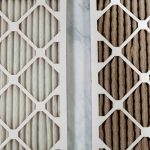Understanding Filtration: A Comprehensive Guide to HVAC Filter Systems
January 26, 2024 5:26 pm Leave your thoughts
Types of HVAC Filters:
There are several types of HVAC filters available on the market, each with its own unique characteristics. The most common types of filters include fiberglass filters, pleated filters, electrostatic filters, and high-efficiency particulate air (HEPA) filters. Fiberglass filters are the most basic and affordable option, primarily designed to protect the HVAC system from large particles. Pleated filters offer better filtration efficiency and can capture smaller particles. Electrostatic filters use static electricity to trap airborne particles, while HEPA filters provide the highest level of filtration, removing up to 99.97% of particles as small as 0.3 microns.
MERV Ratings:
To determine the filtration efficiency of an HVAC filter, it is important to understand Minimum Efficiency Reporting Value (MERV) ratings. MERV ratings range from 1 to 20, with higher numbers indicating greater filtration efficiency. Filters with lower MERV ratings are typically meant for residential applications, while filters with higher MERV ratings are commonly used in industrial and commercial settings. It is recommended to choose a filter with a MERV rating between 8 and 13 for residential purposes, as this range strikes a good balance between filtration efficiency and airflow resistance.
Filter Sizes:
HVAC filters come in various sizes, and selecting the correct size is crucial for proper system performance. The most common filter sizes are 1-inch, 2-inch, 4-inch, and 5-inch. To determine the size you need, carefully measure the dimensions of your existing filter or check the specifications provided by the manufacturer. It is important to note that different systems may require filters of different sizes, so consult your HVAC technician or refer to your system’s manual for guidance.
Filter Replacement:
Regular filter replacement is vital for maintaining effective filtration and preventing the buildup of contaminants in your HVAC system. The frequency of filter replacement depends on several factors, including filter type, MERV rating, indoor air quality, and system usage. As a general guideline, it is recommended to replace disposable filters every three months, while higher MERV rated filters may require more frequent replacements. For electrostatic filters, regular cleaning is necessary to ensure their efficiency. Consult the manufacturer’s instructions or an HVAC professional to determine the ideal replacement schedule for your specific setup.
Benefits of Proper Filtration:
Investing in a high-quality HVAC filter system offers several benefits. Firstly, it helps improve indoor air quality by reducing the presence of allergens, dust, pollen, and other particles that can trigger respiratory issues. This is especially important for individuals with allergies or asthma. Proper filtration also keeps your HVAC system clean, preventing the accumulation of dirt and debris on coils and other components. This, in turn, helps maintain efficient system operation, extends equipment lifespan, and reduces the likelihood of breakdowns. Additionally, a well-maintained HVAC system with effective filtration can contribute to energy savings and lower utility bills.
Summary:
Understanding filtration is vital in ensuring the performance, efficiency, and indoor air quality of your HVAC system. By choosing the right type, size, and MERV rating of the filter, and replacing it regularly, you can create a healthier indoor environment, prevent system malfunctions, and enjoy the many benefits of proper filtration. For personalized guidance and expert advice, it is always recommended to consult a professional HVAC technician who can assess your specific needs and provide tailored recommendations.
Need a HVAC Contractor in Oklahoma City, OK?
Family owned and operated since 1994, we have earned a reputation for providing quality, timely, and affordable heating and air conditioning services to the residents and businesses of Oklahoma City and surrounding areas. With a combined 39 years of experience, our knowledgeable technicians specialize in a wide range of services including the sales, service, and installation of heating and air conditioning systems, filtration systems, air decontaminating UV lamps, dehumidifiers, humidifiers, carbon monoxide detectors, preventative maintenance, air quality systems, and more. We pride ourselves on installing high-efficiency comfort systems designed to be the most cost-effective on the market and geared to your particular property. Contact us today to learn more about what we can do for you!
Categorised in: HVAC, HVAC Service
This post was written by admin
